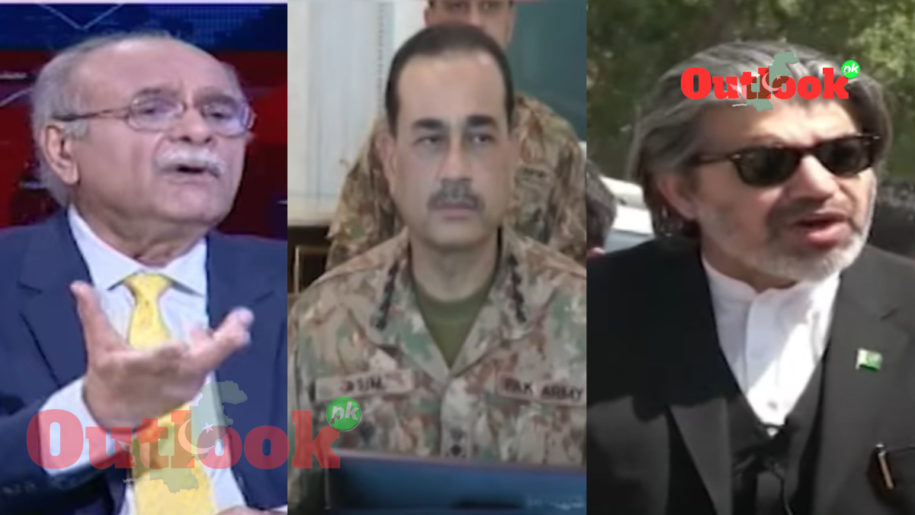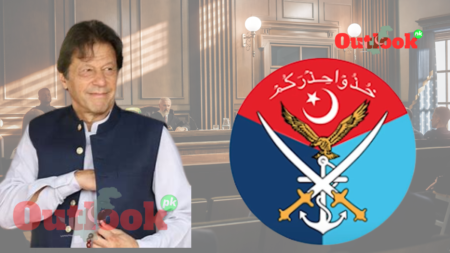In a recent discussion, Najam Sethi revealed shocking details about an alleged conspiracy targeting Pakistan’s Army Chief. These revelations encompass controversial videos, the potential for major arrests, and a deeper look into the rebellion’s implications.
Understanding this situation requires a comprehensive analysis of the events leading up to these revelations and the broader political context.
The Controversial Videos and Public Reaction
Sethi started by mentioning the numerous videos criticizing the Army Chief. These videos, purportedly produced by PTI affiliates, have been a point of contention. The dissemination of such videos raises significant concerns about freedom of speech versus the legal repercussions of targeting military leadership.
Arrests for Criticizing the Army Chief
Sethi pointed out that arrests have been made for criticizing the Army Chief. In many courts, such criticisms are not considered a crime, leading to a legal and ethical debate about the limits of free speech in Pakistan.
Key Points:
- Numerous videos have been made against the Army Chief.
- Arrests have been made for such criticisms, though courts may dismiss these charges.
- The balance between free speech and national security is in question.
PTI’s Strategic Emphasis on Historical Reports
The PTI’s official page has been emphasizing the Hamood Rehman Commission report, calling for protests and announcing conventions. This report, which investigated the 1971 war, is being used to draw parallels with current events, suggesting a pattern of military and governmental overreach.
The Blunder of May 9
May 9 has been termed a significant blunder, with PTI distancing itself from the fallout. This date is associated with a major incident that has caused internal strife within the party, leading to some members leaving and others reconsidering their allegiance to Imran Khan.
Key Points:
- Emphasis on the Hamood Rehman Commission report.
- May 9 is considered a major blunder within PTI.
- Internal party dynamics are shifting due to recent events.
The Alleged Conspiracy and Its Legal Implications
Sethi delved into the serious accusations of a conspiracy against the Army Chief. If evidence is presented, it could lead to significant legal ramifications. The comparison to past military actions, such as the 1971 incident, underscores the gravity of these allegations.
Evidence and Legal Challenges
Presenting concrete evidence of a conspiracy is crucial. Without it, the accusations remain speculative. The government and establishment must provide solid proof to substantiate their claims, which could lead to major arrests and a crackdown on those involved.
Key Points:
- Allegations of a conspiracy targeting the Army Chief.
- The need for concrete evidence to support these claims.
- Potential major arrests if evidence is proven.
Social Media and Digital Terrorism
The role of social media in this political scenario cannot be understated. Sethi highlighted the concept of “digital terrorism,” where misinformation and targeted campaigns on social media platforms are used to influence public opinion and political narratives.
The Impact of Digital Campaigns
Digital campaigns, especially those orchestrated without central oversight, can lead to significant misinformation. This lack of control is dangerous and can have far-reaching consequences, as seen with the PTI’s social media wing allegedly blacklisting individuals and spreading false information.
Key Points:
- Social media is a powerful tool in modern political campaigns.
- Misinformation and lack of central oversight are significant issues.
- Digital terrorism as a concept is being used to describe these activities.
The Broader Political Context
To fully grasp the implications of these revelations, it’s essential to understand the broader political context. PTI’s strategy, historical Western influence, and the relationship between the military and civilian government all play a role.
Western Influence on Pakistani Politics
Historically, Western countries, particularly the US, have influenced Pakistani politics by supporting military dictatorships and undermining democratic movements. This historical context is crucial when analyzing current events and the strategic decisions of political parties like PTI.
Key Points:
- Western influence has historically impacted Pakistani politics.
- The current political strategies must be viewed in this context.
- Understanding this background is crucial for a comprehensive analysis.
FAQs: Addressing Common Questions
Q1: Why are controversial videos against the Army Chief significant?
Controversial videos against the Army Chief highlight the tension between free speech and national security. These videos have led to arrests, raising questions about legal boundaries and ethical considerations.
Q2: What is the importance of the Hamood Rehman Commission report?
The Hamood Rehman Commission report, which investigated the 1971 war, is being used by PTI to draw parallels with current events, suggesting a pattern of military and governmental overreach.
Q3: What are the implications of the alleged conspiracy against the Army Chief?
If evidence of a conspiracy is presented, it could lead to major arrests and significant legal ramifications. The government and establishment must provide concrete proof to substantiate their claims.
Q4: How does social media influence political narratives?
Social media is a powerful tool in modern political campaigns. However, the lack of central oversight can lead to misinformation, which is dangerous and can influence public opinion and political narratives.
Q5: What is the historical context of Western influence on Pakistani politics?
Western countries, particularly the US, have historically influenced Pakistani politics by supporting military dictatorships and undermining democratic movements. This context is crucial for understanding current political strategies.
Conclusion: Navigating a Complex Political Landscape
Najam Sethi’s revelations have opened up a complex discussion about the political landscape in Pakistan. From controversial videos and alleged conspiracies to the role of social media and historical Western influence, these issues are deeply intertwined. Understanding this complexity is essential for anyone looking to grasp the full scope of Pakistan’s current political situation.
Final Thoughts
As we continue to navigate these challenging times, it’s important to stay informed and critically analyze the information presented to us. Engaging with different perspectives and understanding the broader context will help us form well-rounded views and participate meaningfully in the political process.







